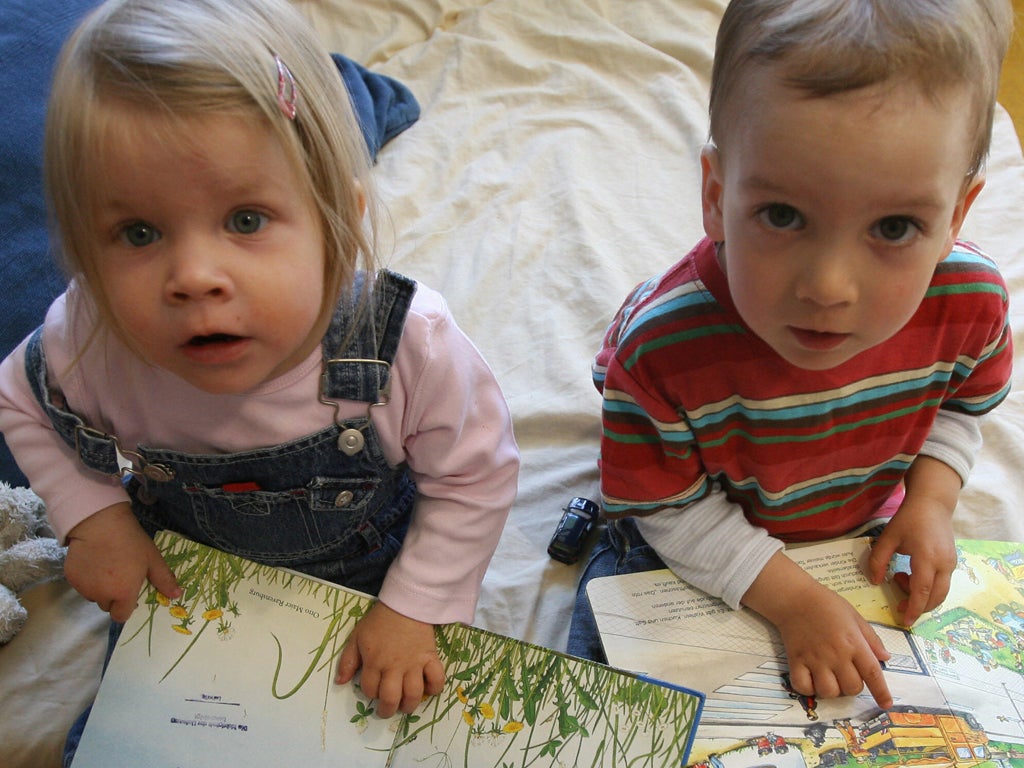A message to anyone involved in education: stop underestimating children
If it weren’t so tragic, it would be almost laughable that Gove has to keep stating that we need to stretch the brightest children

Michael Gove is right. There is a fundamental flaw in our education system. And if only he – and almost everyone else – could climb out of their apparently bottomless box and start thinking about things other than assessment then it might, just might, be possible to do something about it.
The flaw is that we all – teachers, parents, governors, civil servants, ministers, the Secretary of State and everyone else – seriously underestimate what children can achieve if they’re allowed and encouraged to. And blinkered obsession with grades and exam results, as if that were the totality of education and learning, is nine tenths of the reason. As Einstein put it “What counts might not be countable and what can be counted might not count.” More prosaically, you don’t fatten pigs by weighing them.
It would be almost laughable, if it weren’t so tragic, that Gove and co have to keep stating that we need to stretch the brightest children. That is so obvious you can’t help wondering when and why we stopped doing it. But it isn’t children like Adam Kirby, aged two with IQ of 141, who last week became the youngest ever member of Mensa having potty-trained himself by reading a book on the subject, that I’m most concerned about here. Almost every child, irrespective of ability, could achieve much, much more if only we stopped imposing pre-set limits on what we expect of them.
And I mean all children. Last week I was at Unicorn Theatre, London’s only purpose built theatre for children and young people, to watch Tube, a show for children with profound and multiple learning difficulties, presented by the extraordinarily imaginative company Oily Cart and its director, Tim Webb. The cast of three was, in the intimate, entertaining, immersive, interactive, multi-sensory show getting fantastic responses from the six children, swinging gently in special hammocks and who, with their carers, formed the audience. It would be very easy indeed to write these children off as incapable of response, enjoyment and learning – and many people would.
A couple of days earlier I saw twelve young song and script writers, aged 8-13, having their work performed on the stage of the Cambridge Theatre in the West End by the cast of Matilda the Musical. And the standard was humblingly, movingly high. Congratulations to the teachers who saw this as an opportunity and didn’t worry too much about how well it met box-ticking, National Curriculum criteria. This is a Royal Shakespeare Company education project called Write Here Write Now with Matilda - which offers free resources to schools wanting to develop writing and composing skills. They received over 200 entries for the competition and the whole project is ongoing.
The capabilities of children are boundless. And yet as soon as anyone mentions, for example, the possibility of teenagers reading a whole nineteenth century novel, studying history coherently and in depth or problem solving in maths, there are howls of protest from education professionals. Far too difficult and “irrelevant” (one of the education industry’s worst weasel words) they say. “Do you want to humiliate children and demoralise teachers?” a tweeting, angry, former teacher gone into politics demanded of me rhetorically last week.
Of course I don’t. I want them to work and learn together at the highest possible level. As a secondary level English teacher with a GCSE class in 2004 I insisted that we did Great Expectations rather than the much easier alternative chosen by my colleagues for other groups because I wanted to help my students to discover and enjoy something they would initially be unlikely to manage without support. We did it within a term – doesn’t do to let things drag with teenagers – and I made it as lively and involving as possible. Result? Several were so encouraged by what they’d achieved that, hooked and enthusiastic, they went on to read other Dickens immediately afterwards. Real Education. Hurrah. (Oh, and they also passed their GCSE English exam with good grades but I regarded that as incidental).
The motto of one of the local schools in south London when I was growing up (not the one I attended) was Aim High. You couldn’t express it any more plainly. And it doesn’t mean aim for more and more exams with tinkered grade boundaries - Michael Gove please note.
Robert Browning observed that “A man’s reach should exceed his grasp.” He was spot on, of course, casual 19 century sexism apart. Every one of us, not just the super bright, has untapped ability which you find only by reaching out and exploring. And a good, really good, education system will find ways of untapping it and letting it flow freely.

Join our commenting forum
Join thought-provoking conversations, follow other Independent readers and see their replies